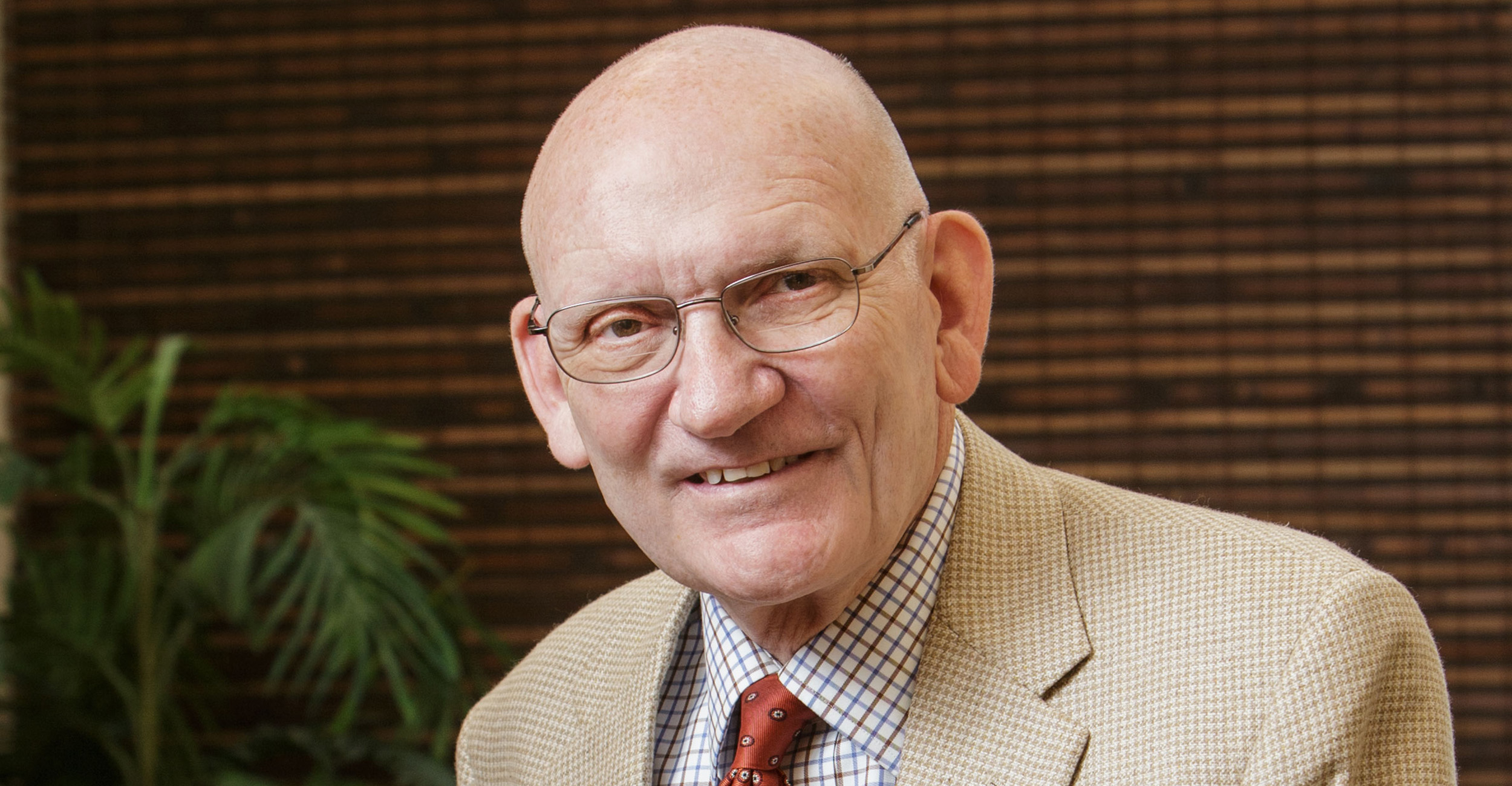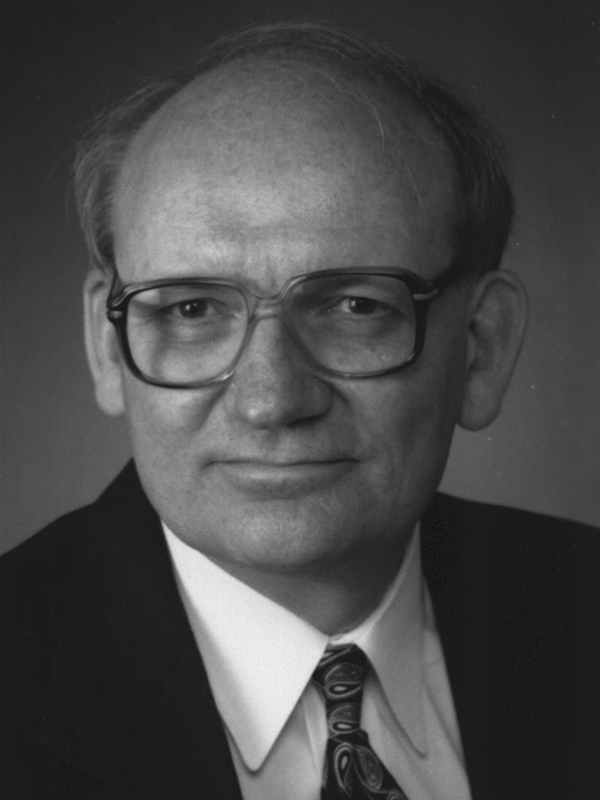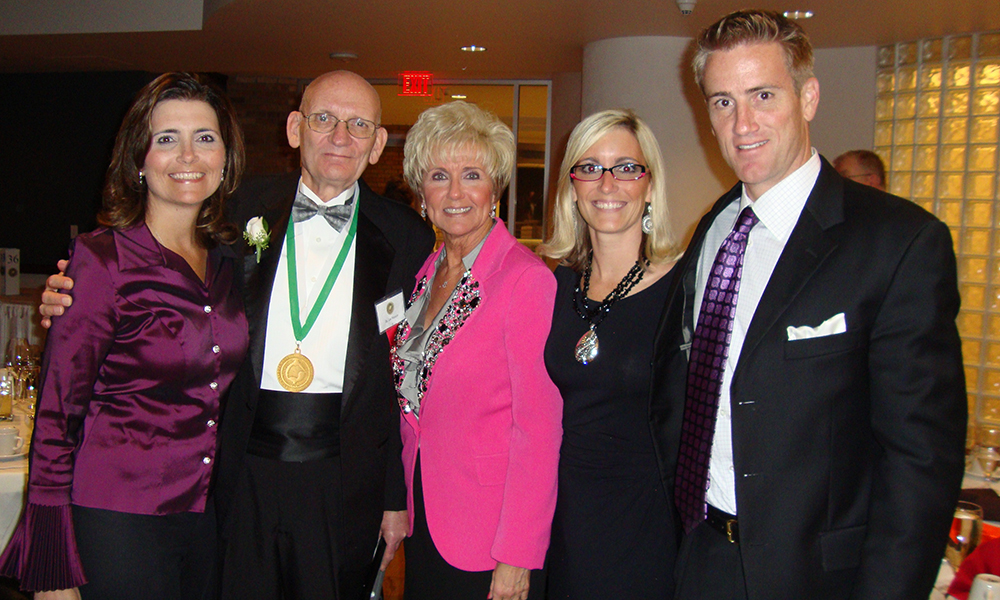
The story seeker: Spears Business Hall of Fame inductee Manzer finds powerful lessons in the ordinary
Monday, August 11, 2025
Media Contact: Hallie Hart | Communications Coordinator | 405-744-1050 | hallie.hart@okstate.edu
Editor's note: The Spears School of Business is releasing a series of feature stories to celebrate the 2025 Spears Business Hall of Fame inductees and Outstanding Young Alumni. This is the second of six profiles leading up to the Oct. 10 ceremony. The series started Aug. 4 with Craig Boelte.
Generations of Spears School of Business alumni know Dr. Lee Manzer’s stories.
Like Aesop’s fables, each witty tale has a clear moral. Unlike the ancient Greek fictional yarns attributed to a mysterious man, Manzer’s modern parables are based on true events.
“People will all of a sudden pay attention, especially if it is a personal story,” Manzer said. “It’s much more powerful to say, ‘This happened to me once,’ than to say, ‘This happened once.’”
Manzer, Professor Emeritus of Marketing, used this strategy to connect with tens of thousands of Oklahoma State University students. He amazed thousands more professionals at seminars, sharing lessons about business, marriage and life. These days, he continues to tell stories as a retired professor in Stillwater.
His influential career has brought him numerous awards, and the latest is his upcoming induction into the Spears Business Hall of Fame on Oct. 10 in the ConocoPhillips OSU Alumni Center. Manzer, 84, has dedicated half of his life to Spears Business, spending 43 years as a faculty member.
Over the years, media outlets covered his impact as an educator, alluding to his classic stories. But to understand how this wise, prolific storyteller inspired so many people, one must know about the people who inspired him.

Humble beginnings
The epiphany hit him in a sweltering barn near Hominy, Oklahoma.
As a teenager, Manzer hauled prairie hay and stacked bales in the barn’s stuffy loft, making two cents a bale and 60 cents a ton. One day, he took a wrong step and lost his balance. Manzer tumbled backward, hay needles clinging to his body like prickles on a porcupine.
“As I was lying there, this thought occurred to me,” Manzer said. “‘I’m going to college.’”
Manzer wasn’t injured, but his realization could have made someone think he was dazed.
No one in his family had finished high school. His father, Ernest Pleasant Manzer, had only four years of formal education. His mother, Celia Mae Dickison Manzer, had one, becoming a caregiver for younger siblings at age 7 after her father died of pneumonia.
Yet, Manzer correctly forecast his academic future. In fact, he underestimated himself.
With three OSU degrees, Manzer retired as one of the university’s most decorated professors, enshrined in the Oklahoma Higher Education Hall of Fame. He graduated with his bachelor’s degree in chemistry in 1965, his MBA in 1966 and his doctorate in marketing with economics and finance minors in 1974.
Throughout a life in academia, he remembered his parents’ humble beginnings.
Celia and Ernest married in 1914, seven years after Oklahoma statehood. They raised three children during the Great Depression. In that Dust Bowl era, the couple migrated to California, where Lee, the fourth child, was born in 1941.
After grueling years as migrant workers, the Manzers returned to Oklahoma in 1947 to run a laundry in small-town Hominy. There, he was immersed in the daily grind of operating a small business.
The family lived in the back of the building, which contained nine old-fashioned wringer washing machines. A young Manzer slept on a collapsible metal bed beside the cash register. Compared to the couch where he used to sleep, his new accommodation was a gift.
Manzer said he never knew they didn’t have much. His mother greeted the family with a savory, hot breakfast daily. Once, Manzer awoke to find her grinning from ear to ear. She had Pillsbury biscuits in a can, thrilled to save the time and labor of starting from scratch.
His parents taught him about faith and gratitude. Although the Manzers had no diplomas, they also influenced their son’s love of learning.
“They were very bright people,” Manzer said. “They both read a lot.”
How far could education have taken them? Manzer decided to find out for himself.
Love and marriage
A recurring character appears in Manzer’s humorous anecdotes.
Saundra DeVore Manzer, his late wife, taught him many life lessons through their everyday interactions. Creative, charismatic and blunt, she inspired some of his most famous stories. Once, she painted his office pink.
Without OSU, they wouldn’t have crossed paths.
Out of high school, Manzer had a few college options. He picked up a couple of basketball scholarship offers that gave him a nice confidence boost, but he declined.
He had his sights set on Stillwater.
“It made all the difference,” Manzer said.
Manzer wasn’t a Cowboy basketball player, though he eventually spent decades as the official OSU scorekeeper. Instead, he dove into his studies, and that wasn’t the only way he prepared for his future.
He and Saundra met as OSU students, and the rest is history. The young couple stuck together through multiple moves, first as he worked in industry for The Dow Chemical Company in Michigan and then as he pursued his Ph.D. at OSU.
After briefly teaching at Memphis State University (now the University of Memphis) in Tennessee, he joined the Spears Business faculty in 1975. From that point on, the Manzers called Stillwater home.
Manzer built a reputation as a tough grader with a relevant and entertaining class delivery. As he taught OSU courses and led service implementation seminars across the country, his storytelling style developed naturally.
Manzer was presenting to Phillips Petroleum Company when he first told what might be his most famous story, one about buying Coca-Cola for Saundra.
This original rendition of “the Coke story” was improvised. Manzer needed to emphasize his point with a real-life example, so he thought about the person he spent time with nearly every day. Simply sharing true stories about his life with Saundra had a memorable effect.
Decades later, those stories continued to resonate with his audiences.
Lasting gratitude
Because of his students and colleagues, Manzer loved his job.
“It’s a lucky person that gets up in the morning, looks in the mirror and thinks, ‘I get to go to work,’” Manzer told his classes. “That’s me every morning.”
Manzer, who received OSU’s 2013 Loyal and True Award for lifelong service, brought that attitude to Spears Business through his last class in spring 2018. In retirement, he holds onto his gratitude.
Times aren’t always easy. He knows the grief of losing Saundra, who passed away in 2024. As Manzer ages, he sometimes has aches and pains, but he somehow shakes them off.
If he had the chance to relive his younger years, he insists he wouldn’t do it. Manzer lives in the present.
He achieved what he always hoped for, including his ultimate dream of sharing a home with a loving family. He and Saundra have three grown children, Britton, Bryndon and Brandye, who each shone in unique ways at OSU. Britton won Miss OSU, Bryndon played Cowboy basketball and Brandye is the only one who obtained a master’s degree.

Manzer also enjoyed seeing his granddaughter, Lynley, winning the 2014 Raymond D. Thomas Award for the top Spears Business graduating senior, and his grandson, Brooks, on the Cowboy basketball team.
“I don’t know why we’re so blessed,” Manzer said.
Manzer might not know the reason, but he knows what to do with those blessings.
Treasure them. Many of his famous stories, layered with wit and metaphors, have some connection to gratitude.
Grounded because of his formative years, Manzer sees the good in the ordinary.
After his presentations, audience members often lingered with questions. His stories were powerful, they said, but how could they replicate his oratory skills? After all, his life was packed with more interesting stories than they could imagine.
“Ah, you’re incorrect,” Manzer said. “You have as many as I have. The difference is, I’m looking for them.”
